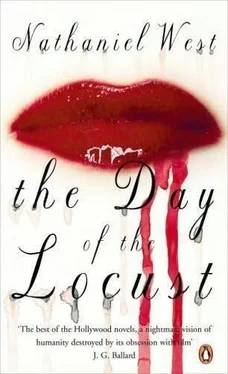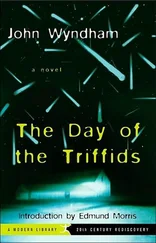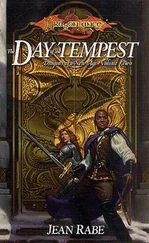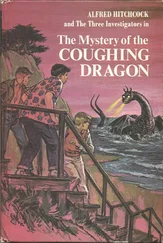It was a childish trick, hardly-worthy of a primitive witch doctor, yet it worked. He was able to avoid her for several months. During this time, he took his pad and pencils on a continuous hunt for other models. He spent his nights at the different Hollywood churches, drawing the worshipers. He visited the “Church of Christ, Physical” where holiness was attained through the constant use of chestweights and spring grips; the “Church Invisible” where fortunes were told and the dead made to find lost objects; the “Tabernacle of the Third Coming” where a woman in male clothing preached the “Crusade Against Salt”; and the “Temple Moderne” under whose glass and chromium roof “Brain-Breathing, the Secret of the Aztecs” was taught.
As he watched these people writhe on the hard seats of their churches, he thought of how well Alessandro Magnasco would dramatize the contrast between their drained-out, feeble bodies and their wild, disordered, minds. He would not satirize them as Hogarth or Daumier might, nor would he pity them. He would paint their fury with respect, appreciating its awful, anarchic power and aware that they had it in them to destroy civilization.
One Friday night in the “Tabernacle of the Third Coming,” a man near Tod stood up to speak. Although his name most likely was Thompson or Johnson and his home town Sioux City, he had the same countersunk eyes, like the heads of burnished spikes, that a monk by Magnasco might have. He was probably just in from one of the colonies in the desert near Soboba Hot Springs where he had been conning over his soul on a diet of raw fruit and nuts. He was very angry. The message he had brought to the city was one that an illiterate anchorite might have given decadent Rome. It was a crazy jumble of dietary rules, economics and Biblical threats. He claimed to have seen the Tiger of Wrath stalking the walls of the citadel and the Jackal of Lust skulking in the shrubbery, and he connected these omens with “thirty dollars every Thursday” and meat eating. Tod didn’t laugh at the man’s rhetoric. He knew it was unimportant. What mattered were his messianic rage and the emotional response of his hearers. They sprang to their feet, shaking their fists and shouting. On the altar someone began to beat a bass drum and soon the entire congregation was singing “Onward Christian Soldiers.”
As time went on, the relationship between Faye and Homer began to change. She became bored with the life they were leading together and as her boredom deepened, she began to persecute him. At first she did it unconsciously, later maliciously.
Homer realized that the end was in sight even before she did. All he could do to prevent its coming was to increase his servility and his generosity. He waited on her hand and foot. He bought her a coat of summer ermine and a light blue Buick runabout. His servility was like that of a cringing, clumsy dog, who is always anticipating a blow, welcoming it even, and in a way that makes overwhelming the desire to strike him. His generosity was still more irritating. It was so helpless and unselfish that it made her feel mean and cruel, no matter how hard she tried to be kind. And it was so bulky that she was unable to ignore it. She had to resent it. He was destroying himself, and although he didn’t mean it that way, forcing her to accept the blame.
They had almost reached a final crisis when Tod saw them again. Late one night, just as he was preparing for bed, Homer knocked on his door and said that Faye was downstairs in the car and that they wanted him to go to a night club with them.
The outfit Homer wore was very funny. He had on loose blue linen slacks and a chocolate flannel jacket over a yellow polo shirt. Only a Negro could have worn it without looking ridiculous, and no one was ever less a Negro than Homer.
Tod drove with them to the “Cinderella Bar,” a little stucco building in the shape of a lady’s slipper, on Western Avenue. Its floor show consisted of female impersonators.
Faye was in a nasty mood. When the waiter took their order, she insisted on a champagne cocktail for Homer. He wanted coffee. The waiter brought both, but she made him take the coffee back.
Homer explained painstakingly, as he must have done many times, that he could not drink alcohol because it made him sick. Faye listened with mock patience. When he finished, she laughed and lifted the cocktail to his mouth.
“Drink it, damn you,” she said.
She tilted the glass, but he ‘didn’t open his mouth and the liquor ran down his chin. He wiped himself, using the napkin without unfolding it. Faye called the waiter again.
“He doesn’t like champagne cocktails,” she said. “Bring him brandy.”
Homer shook his head.
“Please, Faye,” he whimpered.
She held the brandy to his lips, moving the glass when he turned away.
“Come on, sport-bottoms up.”
“Let him alone,” Tod finally said.
She ignored him as though she hadn’t even heard his protest. She was both furious and ashamed of herself. Her shame strengthened her fury and gave it a target.
“Come on, sport,” she said savagely, “or mama’ll spank.” She turned to Tod.
“I don’t like people who won’t drink. It isn’t sociable. They feel superior and I don’t like people who feel superior.” “I don’t feel superior,” Homer said.
“Oh, yes, you do. I’m drunk and you’re sober and so you feel superior. Goddamned, stinking superior.” He opened his mouth to reply and she poured the brandy into it, then clapped her hand over his lips so that he couldn’t spit it back. Some of it came out of his nose. Still without unfolding the napkin, he wiped himself. Faye ordered another brandy. When it came, she held it to his lips again, but this time he took it and drink it himself, fighting the stuff down. “That’s the boy,” Faye laughed. “Well done, sloppy-boppy.” Tod asked her to dance in order to give Homer a moment alone. When they reached the floor, she made an attempt to defend herself. “That guy’s superiority is driving me crazy.”
“He loves you,” Tod said.
“Yeah, I know, but he’s such a slob.”
She started to cry on his shoulder and he held her very tight. He took a long chance.
“Sleep with me.”
“No, baby,” she said sympathetically.
“Please, please…just once.”
“I can’t, honey. I don’t love you.”
“You worked for Mrs. Jenning. Make believe you’re still working for her.”
She didn’t get angry.
“That was a mistake. And anyway, that was different. I only went on call enough times to pay for the funeral and besides those men were complete strangers. You know what I mean?”
“Yes. But please, darling. I’ll never bother you again. I’ll go east right after. Be kind.”
“I can’t.”
“Why…?”
“I just can’t. I’m sorry, darling. I’m not a tease, but I can’t like that.”
“I love you.”
“No, sweetheart, I can’t.”
They danced until the number finished without saying anything else. He was grateful to her for having behaved so well, for not having made him feel too ridiculous.
When they returned to the table, Homer was sitting exactly as they had left him. He held the folded napkin in one hand and the empty brandy glass in the other. His helplessness was extremely irritating. “You’re right about the brandy, Faye,” Homer said. “It’s swell! Whoopee!”
He made a little circular gesture with the hand that held the glass.
“I’d like a Scotch,” Tod said.
“Me, too,” Faye said.
Homer made another gallant attempt to get into the spirit of the evening.
“Garsoon,” he called to the waiter, “more drinks.” He grinned at them anxiously. Faye burst out laughing and Homer did his best to laugh with her. When she stopped suddenly, he found himself laughing alone and turned his laugh into a cough, then hid the cough in his napkin.
Читать дальше












